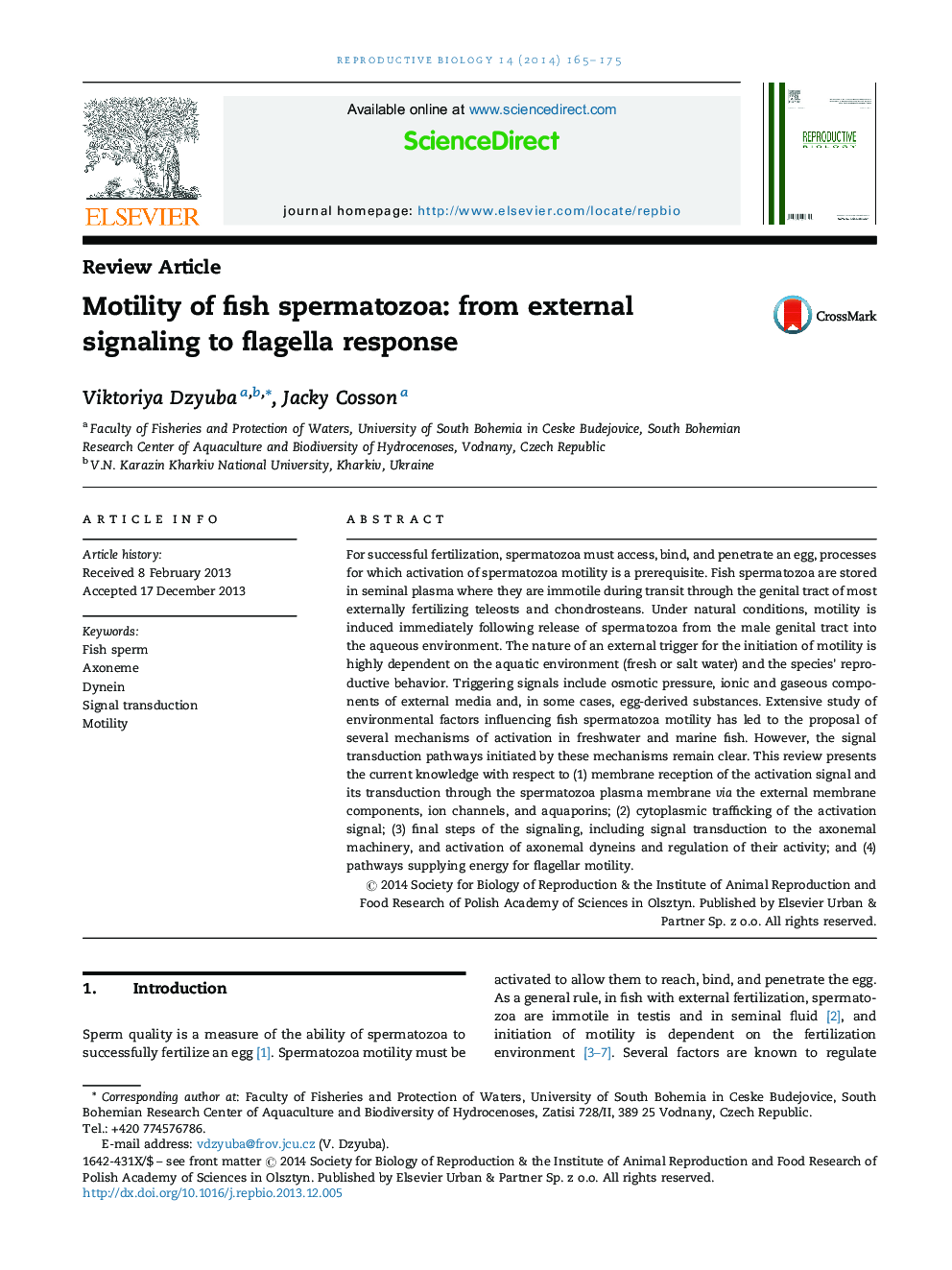| کد مقاله | کد نشریه | سال انتشار | مقاله انگلیسی | نسخه تمام متن |
|---|---|---|---|---|
| 2062421 | 1076606 | 2014 | 11 صفحه PDF | دانلود رایگان |
For successful fertilization, spermatozoa must access, bind, and penetrate an egg, processes for which activation of spermatozoa motility is a prerequisite. Fish spermatozoa are stored in seminal plasma where they are immotile during transit through the genital tract of most externally fertilizing teleosts and chondrosteans. Under natural conditions, motility is induced immediately following release of spermatozoa from the male genital tract into the aqueous environment. The nature of an external trigger for the initiation of motility is highly dependent on the aquatic environment (fresh or salt water) and the species’ reproductive behavior. Triggering signals include osmotic pressure, ionic and gaseous components of external media and, in some cases, egg-derived substances. Extensive study of environmental factors influencing fish spermatozoa motility has led to the proposal of several mechanisms of activation in freshwater and marine fish. However, the signal transduction pathways initiated by these mechanisms remain clear. This review presents the current knowledge with respect to (1) membrane reception of the activation signal and its transduction through the spermatozoa plasma membrane via the external membrane components, ion channels, and aquaporins; (2) cytoplasmic trafficking of the activation signal; (3) final steps of the signaling, including signal transduction to the axonemal machinery, and activation of axonemal dyneins and regulation of their activity; and (4) pathways supplying energy for flagellar motility.
Journal: Reproductive Biology - Volume 14, Issue 3, September 2014, Pages 165–175
